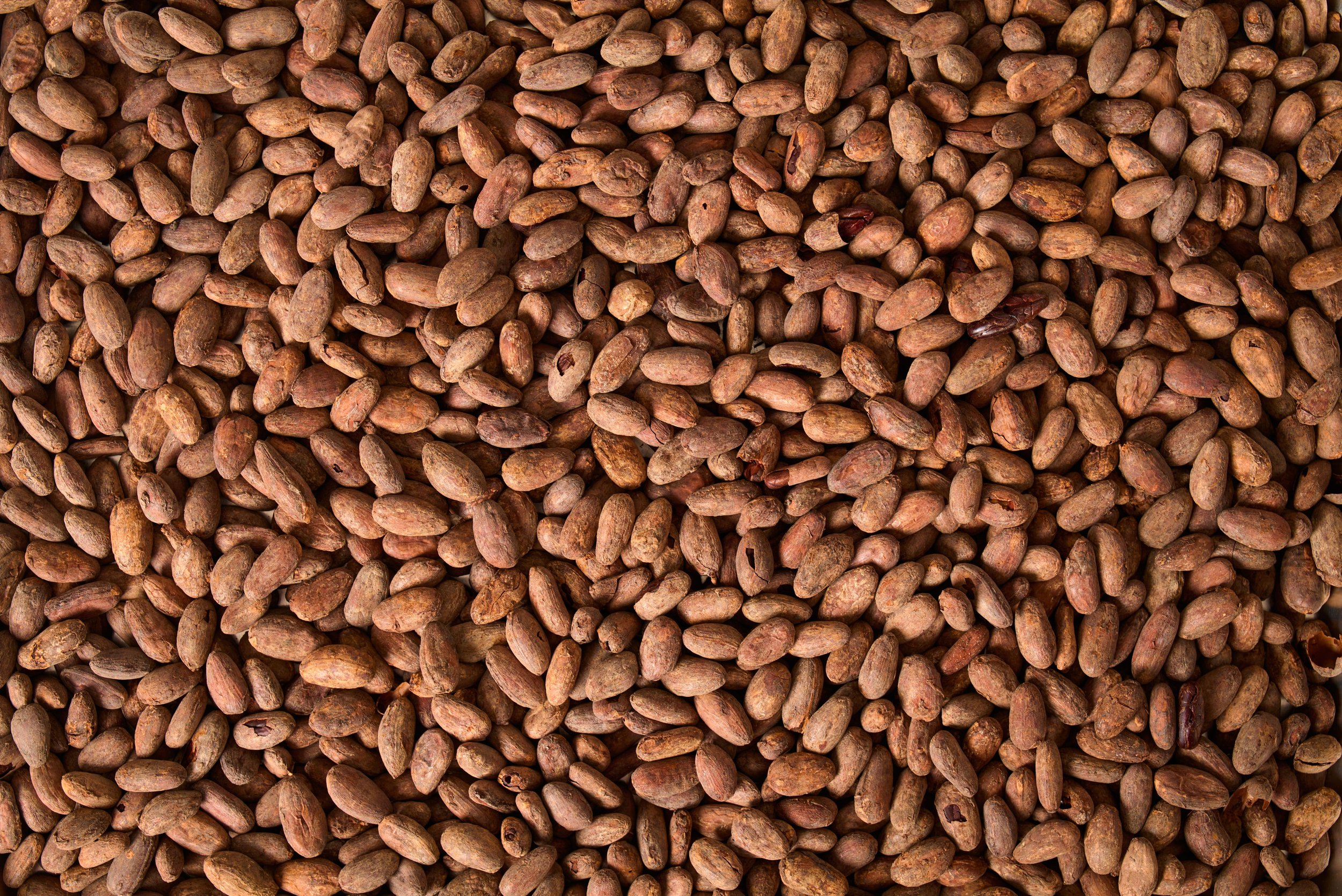
origins.
belize. bolivia. colombia. dominican republic. ecuador. guatemala.
Like coffee or wine, the essential quality and flavor of single-source chocolate comes first from the natural environment in which it is grown, which includes the soil, climate and topography. These uniquely interwoven elements are known as terroir. Lewis Pogue's partnership with its exporter, Uncommon Cacao, has guided us to the best, most flavorful cacao beans that are also ethically-sourced.
For generations, the indigenous peoples of the southern Toledo and South Stann Creek districts of Belize have harvested cacao. Some of the earliest chocolate relics—dating as far back to 600 BC—were discovered there. And yet, despite its rich history, Belize produces a very small fraction of the world’s chocolate. But we believe its native cacao has a uniquely complex flavor profile that everyone should try.
Our cacao comes directly from more than 350 small-farm families who intercrop their cacao trees with hardwood and fruit trees. The farmers bring their beans to our export partner Maya Mountain Cacao, which was awarded an Heirloom Cacao Preservation (HCP) designation in 2014. And in 2019, it won a Cocoa of Excellence Award, making its cocoa one of the top 20 in the world. The bean has a wonderful citrus, honey, and raisin profile that is complex and easy to pair with other flavors.
Wild Itenez Harvest Cacao is from the region around Baures, Bolivia, close to the Reserva Forestal Itenez and the Río Blanco. These beans are rare, native Beniano cacao from the wild Itenez, Bolivia forests, gathered and processed by local campesinos. All Beniano cacao wild forests are called “chocolatales” in Bolivia. According to Heirloom Cacao Preservation (HCP) genetic tests, the cacao is 97.3% Beniano Boliviano with 2.7% Upper Amazon Forastero. This initiative to support collectors of native, wild cacaos was started by Agricultural Economist and General Manager of Rainforest Exquisite Products, S.A. (REPSA) Volker Lehmann, who was responsible for pioneering the wild cacao trade in 2004, with the goal to increase the quality of the harvest process in order to ensure economic gains for all involved. The Wild Itenez Bolivian beans are very small, but the flavor is robust and floral.
Colombia may be best known for its bountiful coffee production thanks to its rich volcanic soil and ideal balance of climate and terrain, but it is also fertile ground to cacao. And yet the success of another crop, coca, has entangled the country in a narco-mire that has contributed to a painful history of civil conflict. Fortunately, the 2016 Peace Accord has opened up a new future for Colombia and its people. And the success of cacao has been a bridge toward autonomy for the farmers of Tumaco, a southwestern coastal region of Colombia.
Our socially conscious partner trade company, Cacao de Colombie, has spearheaded development in Tumaco, where our cacao is directly sourced from three community cooperatives of farmers. Their trees are intercropped with a variety of other plants, including fruit trees, corn, and beans, which are part of the terroir that imbues these cacao beans with luxurious flavor notes of malt, caramel, and molasses with a nutty undertone.
Sometimes described as the birthplace of magical realism, Sierra Nevada cacao grows close to the Caribbean coast. Cacao de Colombia works closely with two associations and a centralized fermentation operation to support biodiverse cacao agroforestry. This diversification supports food security, environmental conservation, and income diversity. This cacao has consistently won over judges worldwide, and received dozens of awards globally, including the coveted Golden Bean Award in 2019. Complex flavor notes of almond butter, nutmeg, and guava.
We get our beans from the heart of this island nation’s major cacao-producing province, Duarte, where there are 165 farmers who grow wonderfully balanced, fruity cacao for our forward-thinking partner,
Öko Caribe, a direct-trade company that supports the farmers with higher prices and through training, loans, and other forms of community support.
Öko Caribe’s farmers intercrop their cacao trees with avocado, plantain, corn, beans, yucca, and cassava, which help give the cacao beans an unforgettable flavor of coconut, fruit, and a bitter cherry ending.
Compañia Exportadora de Cacao de Aroma y Orgánico (CECAO) is an Organic, Fair For Life certified cacao operation in Ecuador. CECAO is based in Guayaquil, Ecuador, and works collaboratively with 10 community-based member associations across south central Ecuador. Nearly 20% of the 1,496 registered producers are women. Through the CECAO Foundation, all associations receive technical assistance and additional services, including subsidized high-quality planting material and a social fund to support producer families in the case of emergencies. CECAO works closely with its producer network to focus on productivity of farms, quality of post-harvest, and intercropping of other fruit species for ecological and economic diversity. CECAO is committed to paying farmers fair prices, improving cacao productivity, maintaining high quality and consistency, all at high volumes. Each association has their own manager(s) who are responsible for traceability, producer network and relations, buying, and post harvest. The associations all have their own centralized fermentation and drying facility that processes all of the producer network’s cacao in that region. CECAO pre-finances 100% of the associations, which provides the necessary working capital for the associations to buy wet cacao from producers. In return, the associations sell exclusively to CECAO.
Perched on a mountaintop overlooking the extensive jungled hills of the Cahabón River region, the Adioesmac association, made up of 23 members, heavily invests in making cacao production a driver of success for their community and future generations. With this in mind, the association leadership, including Sebastian Tiul and Alberto Sotz Tec, invested in their relationship with Cacao Verapaz and a local NGO to create a clonal garden. The association also produces cinnamon and chili peppers for income, and focuses on protection of local water sources. In addition, a women’s group, called Chocolate ADIOESMAC, built an artisanal chocolate factory to sell bars of bean to bar chocolate in the nearby tourist town of Lanquín. The Cacao Verapaz team has supported the association in implementation of the USDA-funded MOCCA project, which allowed members access to online and on-land workshops that focused on better fertilization practices, quality control, and sensory evaluation, supporting their production of cacao with flavor notes of orange zest, toasted almond, and chocolate cookies. The cacao produced by ADIOESMAC was awarded a Top 50 qualification in the Cocoa of Excellence awards in 2019.








